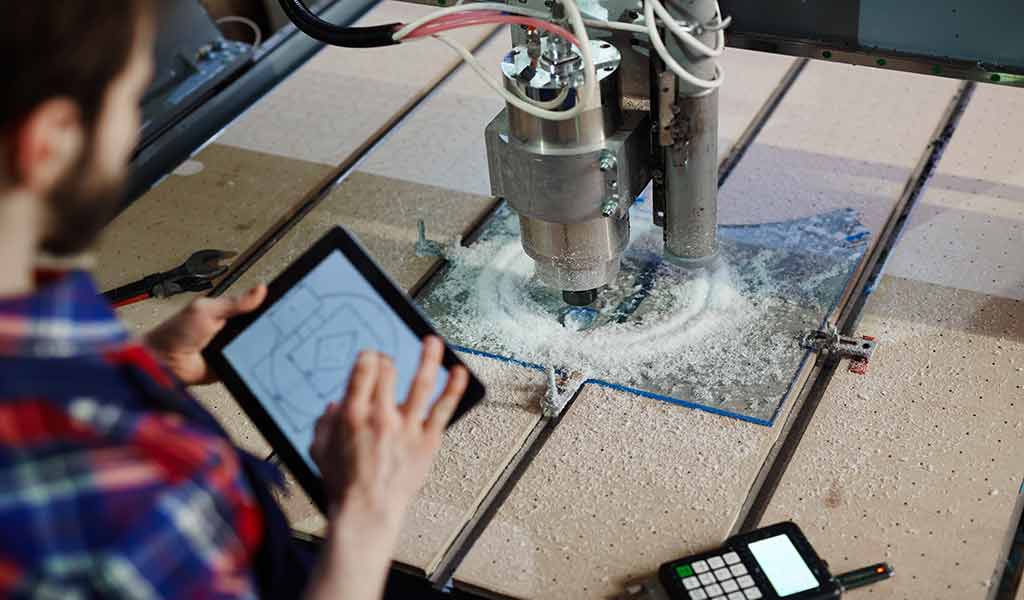
Industry is beginning to embrace digital technologies in order to achieve the same production success; flexibility and productivity, that pioneering industries are enjoying in this area. If you haven't yet considered taking advantage of the technologies available, it may be time for you to join us on a little journey into automated solutions.
Industry yearns for ways to reduce its production costs, gain efficiency and improve its competitiveness. These challenges are not new, as other sectors have previously faced them with great success by delegating their processes to digitized management systems.
How long can we afford to delay the digitization of our processes?
The well-known ERPs or even RPAs (Robotic Process Automation), are software solutions that are already assimilated as indispensable in sectors such as banking, energy or telecommunications. Each in its own field, they maximize the potential of organizations by allowing them to streamline their management processes and become more efficient.
In these sectors, the development of automation in administrative, marketing, accounting and financial processes, and even with digital managers capable of advising on complex operations, are characterized by responding to environments with massive and highly repetitive operations, being able to provide the level of user experience that society demands. Hence, they are nourished by the potential of digitized tools.
Bots have already become essential tools to become more operational and reduce production costs, although they will probably never be able to perform 100% of operations.
As an example, bots have already become essential tools to become more operational and reduce production costs, given their immense potential to work with large databases and combine multiple operations in real time, although they will probably never be able to perform 100% of operations. If we can identify what have been the keys to success in these sectors, how long can we afford to delay the implementation of these technologies in industry?
Industrial processes also need to be digitized
If we scrutinize everything that happens in our factories, we will quickly find similarities. Repetitive processes "everywhere" that often go unnoticed but end up weighing down our productivity. And beware, because most of them do not add value to operations.
Today we are in a position to minimize many of the manual operations that have been assumed as part of a process and only increase costs. This is the case of operations that allow us to keep equipment running when we could use technology to provide the process with greater productive intelligence.
Interconnection of equipment in an automated line increases its potential

During the manufacturing process, there are already solutions and management platforms that are capable of autonomously making decisions to optimize production and increase its performance. Why should we polish the entire surface of a part when a machine vision camera can detect the damaged area to be reprocessed? This is just one example that is perfectly understandable.
Why polish the entire surface of a part when a machine vision camera can detect the damaged area to be reprocessed?
To discern which processes we should prioritize when automating them, it is first necessary to question the impact they will have on production, as well as their starting situation:
- What level of maturity is the process at? Is it robust?
- Will it increase our productive capacity?
- Will we strengthen product quality?
- Will we be more flexible?
- Will we reduce our consumption?
- Will it boost our competitiveness?
- Are they going to have a positive ROI?
Digitalization and automation yes, but where are the workers left?
Automating operations that by their nature do not add value to a process will allow us to assign operators to the most critical positions, with greater added value. These actions will trigger the operator to acquire new skills and will favor him when it comes to opting for better paid professional categories.
If a bot can solve 80-90% of the queries made by phone or online to an energy company, why not let an industrial robot handle the loading and unloading of parts on a press or CNC machine?
The banking industry studied (with great success) the behavior of users and discovered that the vast majority of transactions do not require the intervention of operators. Do you still think that your company does not have similarities or patterns?
Technology is now available to generate opportunities
Whether due to globalization or "0 kilometer" productions, the market demands an evolution of production models; more flexible, higher quality, lower costs... "forcing" to understand digitalization as a new opportunity.
At SMARTPM we have specialized in designing intelligent automated solutions. Do you want to see how to approach a change process step by step? Learn how we automate your industrial processes.
Header photo: pressfoto - Freepik / Inside photo: Lifestylememory - Freepik
